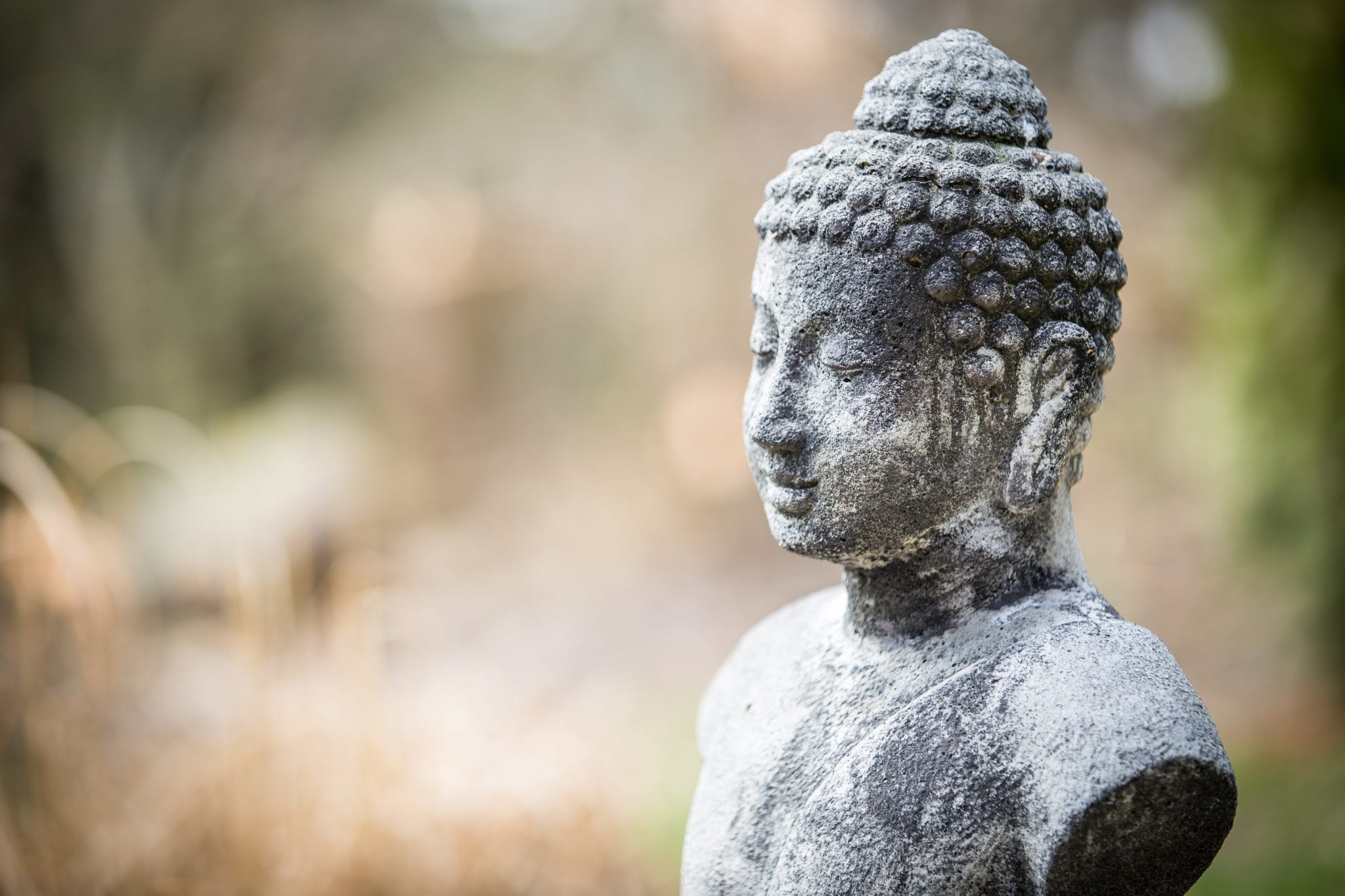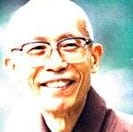After practicing buddhadharma for a while and listening to lectures about liberation and freedom, some people feel very frustrated if they have not gained realization. They forget that it takes a very long time to evolve from being an ordinary person to being a buddha.
Some people like to talk about the deepest dharma—the dharma of the buddhas and bodhisattvas—but not so much about dharma for ordinary people. When the teaching is pitched too high, it can discourage people because it can be too difficult to accomplish. In this situation, the more people study buddhadharma, the more frustrated they can become. But if we realistically apply standards appropriate to ordinary human beings, if we use dharma as our guide and strive to accomplish what ordinary humans can, this wisdom can lead us to the other shore.
Since there are different levels of freedom and different levels of liberation, most people cannot expect to be liberated from everything all at once. This must be achieved gradually.
Freedom of the body means being able to move without obstruction. If one only cultivates freedom of the body, it is possible to gain supernatural powers and manifest transformation abilities. But for ordinary people, supernatural powers are limited and transient. Until one has attained buddhahood, there is no true freedom of the body; one will experience birth and death. Thus, supernatural powers are not enough to lead one to liberation.
Freedom of the mind means being free from vexations. When one’s perceptions are based on greed, anger, ignorance, pride, and suspicion, and so on, the world becomes full of problems; when one perceives the world through wisdom, the mind becomes unobstructed and free.
There are different levels of sentient beings and different levels of freedom. Ordinary people are perplexed and cannot be liberated in the Buddhist sense, and they remain not free. On the other hand, bodhisattvas who have gained liberation enjoy everlasting freedom.
Ordinary sentient beings can apply Buddhist concepts to guide and regulate their lives and resolve light vexations, but it is more complex for heavy vexations. Some have high expectations, hoping that upon hearing the dharma, their minds will become free. Some who have deep vexations say they are happy, but soon afterward their eyes may fill with tears. Is this true freedom?
Someone born in prison, who knows nothing about the outside world, may think prison is not such a bad place, but someone who is put there by force knows that being in jail is not being free. Similarly, some people, upon hearing the buddhadharma realize for the first time that they are not free. It is very precious that we can experience the dharma in this way.
Those who are averse to life, death, pain, and worldly suffering, and who yearn to enter nirvana can only attain limited liberation. True freedom comes in not fearing life and death, and not being bound by the cycle of birth and death. Thus, we should strive not for limited liberation but for the great freedom of the buddhas and bodhisattvas. Only buddhas and bodhisattvas can be fearless in the face of life, death, and suffering, without themselves suffering. Kshitigarbha (Earth Treasury) Bodhisattva said, “Who will descend into hell to deliver sentient beings if I don’t?” So he vowed “not to achieve buddhahood until all hells are empty.”
Willingly going to realms of suffering to deliver sentient beings while being able to enter and leave freely, that is true freedom. By contrast, ordinary sentient beings are restricted to places according to their karma, and are unable to come and go as they wish. Therefore, they are not truly free.
While liberation and freedom are states of enlightenment, ignorance and enlightenment are relative. People abiding in ignorance are not enlightened, but truly enlightened people do not abide in enlightenment. That is because when there is attachment to being enlightened, there is no true freedom. Ordinary people abide in the concept of “I,” which includes “me” and “mine.” When they analyze the “I,” they may find that the “me” part is nonexistent, but the “mine” part still exists. In the first place, the body is “my body” but it is not “me.” As for “my money,” “my house,” etc., these are all “mine.” Since there is no real “me” that can be felt, it is ignorant to think of what is “mine” as “me.”
I once met a retired businessman who said, “I am now liberated and free.” I asked, “How are you liberated and free?” He said, “I passed on all my duties and properties to my son, so now I own nothing!” I asked him, “Is your son still yours?” He said, “Of course my son is mine, nobody can take that away.” I said, “If your son is still yours, how you can you really be liberated and free?”
If there is still something belonging to “me,” one still abides in ignorance.
If an enlightened practitioner abides in the idea of being liberated, that is not great liberation. The true freedom of the path of the buddhas and bodhisattvas is in having no idea of self, nor any idea of being liberated. The Diamond Sutra asserts, “No self, no others, no sentient beings.” This does not mean one should not act in the world, but that one should use compassion and wisdom to help any sentient being, unconditionally. This is true freedom.
There is a saying that goes, “Do not linger at the place where there is a buddha,” and another saying that goes, “Move on quickly at the place where there is no buddha.” Two Buddhists were on a pilgrimage; one of them was not enlightened, the other was. One day, they passed a temple and the first one said, “There must be a buddha in the temple, let’s go in and pay our respects.” The other one said, “Since the buddha is already there, let’s not waste time and just move on.” Another time, they passed a deserted temple, and the first one said, “There is no buddha in there, so we should go in and pay our respects.” The second one said, “We are on a pilgrimage; since there is no buddha there let’s just move on.”
Why move on when the buddha is there and also move on when there is no buddha there? Because if the buddha is not already in your mind you will not him find him anywhere outside. If you cannot see the buddha within and only see the buddha outside, that is not the real buddha. Just move on quickly and continue practicing. If you truly know liberation and freedom, buddha is everywhere and nowhere.
Seeming Liberation and Progressive Liberation
The Chinese phrase “seeming liberation” refers to the liberation practices of ordinary people. It means using what we understand of the dharma to help us relieve vexation, and the more we practice, the more we can help ourselves. One example is the use of prayer beads. Why use prayer beads? We use them for counting with our hand when reciting the Buddha’s name. What is the use of counting when we recite the Buddha’s name? When our thoughts wander, as long as our fingers are moving, that reminds us that we were reciting the Buddha’s name. What is the use of reciting the Buddha’s name? Some recite the Buddha’s name to be reborn in the Pure Land of Ultimate Bliss, for disaster mitigation, or for peace of mind.
Actually, reciting the Buddha’s name is for calming the mind and eliminating vexations. Do we recite with the mind or with the mouth? There are two useful sayings: “Reciting the Buddha’s names is not a matter for the mouth,” and “meditating is not a matter of training the legs.” We use the mind when we recite the Buddha’s name. The Chinese character for “recite” (nian) means the “present mind.” The present mind is the mind that is reciting the Buddha’s name, and that is how to recite the Buddha’s name. And when we meditate, we also use our mind instead of merely training our legs.
When we practice in this way with faith, there can be liberation, at least on the personal level; how much depends on how deep our practice is. For ordinary people, one cannot reach ultimate liberation all at once, so we call it seeming liberation.
For people who wish to practice the Mahayana path to buddhahood, one begins by entering the bodhisattva path. This path is both gradual and progressive, so one should not be impractical and overly ambitious; one cannot become a buddha overnight. Although Mahayana Buddhism has the concept of sudden enlightenment, it requires long and gradual practice. So what appears to be sudden is actually the result of long practice. Chan and Zen talk about gradual and sudden enlightenment, but the two are actually the same. So how then does one best practice Chan? The best way is by seeing Chan as daily life. Especially for ordinary practitioners, it is very important to experience dharma with the mundane body and mind. Chan is not mystical and elusive; as long as one is mindful in daily life, Chan is everywhere.


